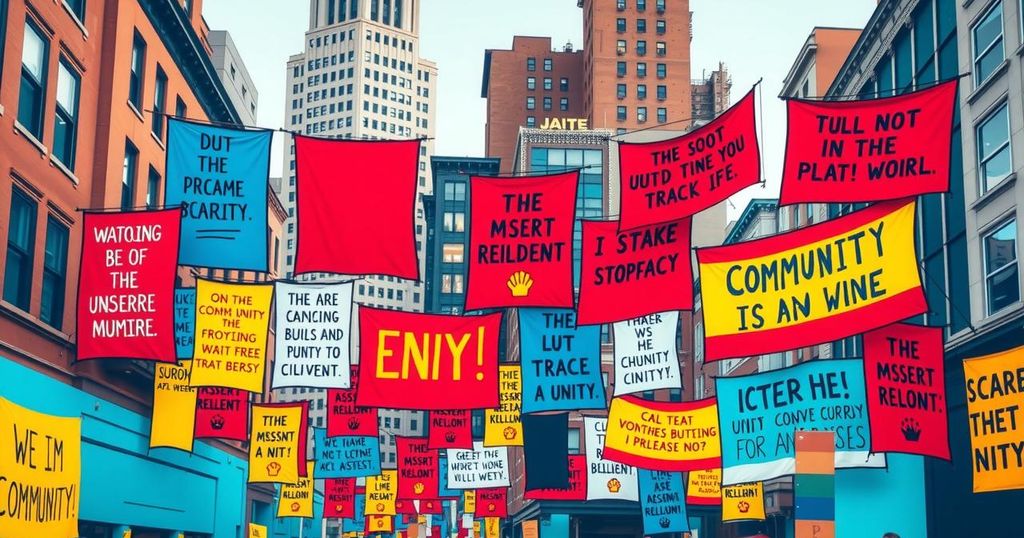On March 12, 2025, a protest against pension cuts in Buenos Aires was violently suppressed by police, resulting in numerous injuries and detentions. The government’s crackdown reflects an alarming trend of repressing social mobilization and criminalizing dissent, undermining democracy and human rights. International organizations are urging authorities to respect protesters’ rights and investigate police actions thoroughly.
On March 12, 2025, social and human rights organizations expressed alarm over the violent suppression of a social protest in Buenos Aires, marked as the “march for the retired,” which has been ongoing for months. Demonstrators were protesting against cuts to pensions and essential medications amid severe economic austerity. The security forces’ response was deemed excessive and inappropriate, violating both regional and international protest rights standards, with over 20 injuries and 114 detentions reported, including minors.
An 87-year-old woman was physically harmed by police during the protest, illustrating the brutality of the crackdown. Additionally, photographer Pablo Grillo sustained critical injuries from a tear gas canister. The indiscriminate use of force included rubber bullets, tear gas, and pepper spray, affecting attendees of all ages as the police sought to disperse crowds near the National Congress using aggressive tactics.
The current government’s policy, enacted in December 2023, criminalizes any demonstration involving street blockades and has empowered law enforcement to use firearms during protests. This change, along with the repealing of regulations previously forbidding gas guns and the broader criminalization of protesters, highlights a systemic suppression of dissent by the Argentinian government.
In 2024, there were over 93 arbitrary detentions and 600 injuries during protests, indicating a rising trend of civil liberties violations. Government narratives framing demonstrations as threats to stability have contributed to this trend. High-ranking officials have labeled protests as “terrorist actions” and indicated intentions to pursue charges against judges who advocate for civil rights.
The government’s increasingly authoritarian approach threatens key democratic values such as freedom of expression and social protest, raising concerns not only domestically but across Latin America. Various international and regional organizations express solidarity with Argentinian citizens advocating for improved living conditions. They urge authorities to respect international human rights obligations and to investigate police misconduct thoroughly, calling on the government to foster an environment conducive to public dissent.
The repression of social protests in Argentina underscores a significant threat to democratic ideals and human rights. Recent events illustrate the government’s willingness to suppress dissent and infringe upon civil liberties under the guise of maintaining order. International solidarity and advocacy for better public policies are necessary to counter these authoritarian trends and to protect the right to peaceful protest in Argentina. In summary, the ongoing crackdown on dissent highlights a concerning trajectory toward authoritarianism, prompting urgent calls for the restoration of fundamental rights and freedoms.
Original Source: www.omct.org






